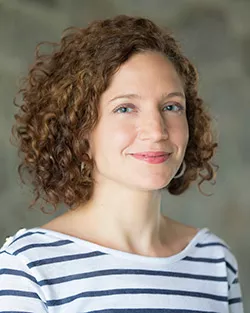Q&A With Political Scientist Ayse Kaya

A scholar of globalization and international political economy, Assistant Professor of Political Science Ayse Kaya has always been curious about how states’ economic power relates to their political power in multilateral economic institutions, such as the International Monetary Fund (IMF) and the World Bank.
While researching the topic, Kaya discovered that, contrary to popular belief, political power was not simply reflected in economic power.
“My discipline – international relations – routinely studies 'power' and 'institutions,' but had not adequately explored the intersection,” she says. “We have perspectives that eloquently argue how institutions tame and discipline power to pave the way for cooperation among states. Hence, their focus is on institutions. On the other hand, we have perspectives that see institutions as servants of powerful actors.”
This curiosity led Kaya to explore the topic in-depth in the new book Power and Global Economic Institutions (Cambridge University Press, 2015). Below, Kaya discusses the book, her findings, and how she plans to incorporate her findings into her teaching.
Q: What is the main takeaway of your new book?
A: Very simply, multilateral institutions adjust the importance of the distribution of inter-state economic power. Like a volume dial, in some institutional settings, you hear the differences in states’ economic power loudly; in other cases, the effects of that economic distribution are relatively more muted.
Q: What implications does this have for today’s society?
A: For one, this argument has implications on how we interpret the economic rise of China within a system that has been created and led by the United States. China’s increasing economic prowess will be more important for some institutional settings than others. In other words, it is not a simple story of “China’s economic rise becomes enhanced political power for China” in all multilateral institutions. As an example, if we look closely, we will see that China’s economic rise has different implications for the World Bank (which focuses on economic development) versus the IMF (which focuses on monetary stability), even though these two are known as the “twin” international financial institutions.
Q: What is your assessment of the current multilateral economic system?
A: Political scientists like pointing out that institutions are sticky, so in this regard, I don’t think the multilateral institutions face immediate existential threats. But, they do face consequential fragilities that need to be urgently addressed. As a quick example, both the economically rising states, such as China, and the institutionally dominant states, such as the United States, tend to exhibit greater interest in using some of these institutions as platforms to induce alterations in the other side’s behavior, while shielding their own policies from change. This is a source of tension between the key shareholders of the institutions.
Historically, American leaders have taken a far-sighted view of institutions. During and after World War II, American policymakers led the creation of the United Nations, the World Bank, and the IMF to stabilize the system and prevent war. Americans have enormously benefited from this predictable rule-based order. When we hear U.S. politicians here scapegoating international institutions, it threatens to pull down the entire house at a moment when new great powers like China are entering the picture. Instead, we should look for opportunities to strengthen and update them.
Q: How will you incorporate your findings into your teaching?
A: Since I teach on global governance and international political economy, there will be an easy synergy between the book and the content of my teaching. I think the text will be helpful in giving students of international relations a historical background on key multilateral economic institutions – the IMF, the World Bank, and on the international trading system – as well as in having them deepen their understanding of these institutions’ key functions and purposes. It also contains theoretical discussions on how different perspectives in international relations think about the impact of power on institutions. Finally, it discusses issues of widespread interest to Swarthmore students, such as the position of weak states in these institutions, which are often vulnerable to being coerced.



